Top-Rated Debt Collection Agency in Washington
Efficient and Trustworthy Debt Collection in Washington - No Hidden Fees, Pay Only When We Succeed. Take Advantage of Our FREE Consultation or Submit Your Claim Today.

Unmatched Debt Collection Services with Debitura in Washington: Your Key to Successful Recovery
Welcome to Debitura, your expert Debt Collection Agency in Washington. We're not just a collection agency, but your strategic partner in debt recovery. Specializing in accounts receivables management and enforcement court proceedings, our team provides a thorough, regulations-compliant approach to recovering outstanding debts. Backed by deep understanding of Washington's debt collection laws and an unwavering commitment to effective solutions, choose Debitura for a superior end-to-end service that will streamline your recovery process and bolster your bottom line.

Comprehensive debt recovery solutions in Washington from start to finish.

Data-driven personalized debt recovery in Washington

Harnessing 500+ international experts for successful debt recovery

Achieving 87% debt recovery success in Washington.
Key facts
- Debt Collection Laws: Debt collection in Washington is regulated by both federal and state laws.
- Statute of Limitations: For written contracts, the limitation period is six years from the date of the last payment.
- Interest Rates: The maximum interest rate allowed in Washington is 12% unless a written contract specifies otherwise.
- Late Payment Fees: There is no maximum late fee specified by law in Washington.
- Wage Garnishment: Washington follows federal wage garnishment laws, allowing up to 25% of disposable earnings to be garnished.
- Small Claims Limit: The small claims limit in Washington is $10,000 if brought by a natural person; $5,000 for all other cases.
- Collection Agency Regulations: Collection agencies in Washington are subject to regulation and must obtain a state license.
- Garnishment Exemptions: Certain personal property, pension money, and retirement plan benefits are exempt from garnishment.
- Prohibited Practices: Violating prohibited practices by collection agencies is considered a violation of the Washington State Consumer Protection Act.
- Debt Buying: Individuals or businesses that buy the debt of a third party are not required to be licensed or bonded.
This guide is not legal advice and laws/rules may change; consult a qualified professional for personalized assistance. Use at your own risk.
Introduction to Debt Collection In Washington
Debt collection is the process fruitfully utilized by business entities of Washington to recover debts from individuals or businesses unable to meet their payment obligations. Typically, a business who is owed money (the creditor) solicits assistance from a debt collection agency to recover the specified amount from the person or business that has defaulted on payments (the debtor).
As part of the intricate financial ecosystem, three key players shape the debt collection framework: the debtor, the creditor and the collection agency. The debtor, by definition, is the person who owes money to another entity. Conversely, the creditor is the entity to whom money is owed, often being a bank, credit union or a company. To facilitate the recovery of debt, creditors can engage the services of a collection agency, an intermediary specialized in pursuing payments of debts owed by individuals or businesses.
Collection agencies operate with the legal backing provided under the Fair Debt Collection Practices Act (FDCPA), which sets ethical standards and necessary guidelines for debt collection.
The Key Stages in Debt Collection
Debt collection in Washington places significant emphasis on structured processes. These processes are divided into three critical stages: pre-legal actions, legal actions, and debt enforcement proceedings.
In the pre-legal stage, collection agencies send debtors formal written requests for payment, known as “demand letters”. The agencies also utilize phone calls and emails to remind the debtor of their obligations. If the debtor remains non-responsive or the debt remains unpaid, collection agencies may progress to the legal stage.
In the legal stage, the collection agency can file a lawsuit against the debtor to recover the owed amount. The legal proceedings can result in a judgment for debt recovery, paving the way for the final stage: debt enforcement. During this phase, debtors' wages can be garnished or properties levied to satisfy the judgment and recoup the debt, contributing to the robust and systematic nature of debt collection in the state of Washington.
Debt Collection Laws In Washington
In Washington State, debt collection practices are regulated strictly by a combination of both federal and state laws. Federal laws comprising of the Fair Debt Collection Practices Act (FDCPA), the Fair Credit Reporting Act (FCRA), and the Telephone Consumer Protection Act among others provide the primary framework for regulating debt collection practices nationwide. These laws are overseen and enforced by regulatory bodies such as the Consumer Financial Protection Bureau (CFPB) and the Federal Trade Commission (FTC).
The FDCPA provides several provisions to protect consumers facing debt collection. For instance, collection agencies are prohibited from calling debtors at inconvenient times or places, forbidden from making false or deceptive statements in their collection efforts, and are required to provide written validation of the debt upon the consumer’s request. The FCRA, on the other hand, governs how collection agencies can affect credit ratings. It sets the rules for retaining debt information on credit reports and also mandates that the debtor be informed if information on their report has contributed negatively towards a credit decision.
Furthermore, the Telephone Consumer Protection Act regulates calls made to debtors, stipulating that debt collectors cannot call outside certain hours, must respect requests not to be called again, and must be straightforward about the identity of the caller and reason for calling. These federal laws establish a foundational framework within which all states must operate.
State Laws in Washington
Along with federal debt laws, Washington has specific laws that govern the debt collection practices within its jurisdiction. Most of these laws are aligned with federal regulations, but with further restrictions and clarity added for specific scenarios. The Washington Collection Agency Act under the Revised Code of Washington (RCW) Chapter 19.16 is a good example. This act outlines the requirements and prohibitions for collection agencies operating within the state. Furthermore, violations of these provisions are considered a violation of the Washington State Consumer Protection Act.
Key provisions under Washington law include the statute of limitations on debt collection, rules on garnishment exemptions to protect judgement debtor’s wages, rules for dishonored check collections, and regulations for the licensing and bonding of collection agencies. Notably, collection agencies are required to post a surety bond of $5,000 and are subject to regulation under RCW Chapter 19.16, but individual employees of the agency are not required to be licensed.
Specifically, debt collection cases in Washington can be filed in either the Superior Court, having unlimited civil jurisdiction, or the District Court, restricted to claims of $75,000 or less. Fees for civil cases vary accordingly with a basic filing fee in the District Court being $73.00 and that for the Superior Court $240.00. Processes in Washington can be served by county sheriff or private process servers, while private process servers may charge the actual cost of service or a reasonable fee, depending on the amount.
Understanding the Law
It’s crucial for both creditors and debtors to understand these laws to know their rights and responsibilities when it comes to debt collections. While penalties apply to dishonored checks, there are built-in protections for justifiable Stop Payment Orders. Similarly, judgment debtors' wages are protected in Washington with garnishment exemptions, ensuring that a substantial portion of the debtor's disposable earnings per week are exempt from garnishment.
Finally, while there have been few appellate cases in Washington specifically related to debt collection, accuracy of information given to debtors by creditors is important, as reflected in seminal Washington Supreme Court case Panag v. Farmers Insurance Company. A case is currently being considered by the Washington State Supreme Court regarding whether the statutory scheme for offers of settlement applies when a plaintiff recovers "nothing" in a debt collection case.
In conclusion, Washington State laws strive to strike a balance between the rights of consumers and creditors. Though complex, understanding these laws can empower debtors and creditors to navigate the debt collection process confidently and fairly.
Risk Free Debt Collection
Upload your claim and get started with our 100% no-cure-no-pay collection solution.
The Debt Collection Process In Washington
Debt collection in Washington happens in discrete steps, each falling under specific regulations and providing unique protection to both the debtor and the creditor. Fully understanding this process is beneficial for both parties and facilitates smoother, more lawful collections.
The process can be divided into several main steps: evaluating the case, the pre-legal or amicable phase, evaluation with legal considerations, legal proceedings, and post-judgment actions.
Case Evaluation
The initial step in the debt collection process in Washington is case evaluation. During this stage, creditors should ensure that the case is within the statute of limitations for written contracts, which is six years from the date of the last payment. If a case is too old, it may not be legally enforceable.
Also, creditors should evaluate the debtor's ability to pay the debt, taking into consideration their income, expenses, and any available property or resources. Investigations into potential asset ownership, employment status, or creditworthiness can be done alongside legal research.
Pre-Legal / Amicable Phase
This phase involves reaching out to the debtor through various communication channels, aiming to come up with an amicable solution to the debt issue. At this stage, the communication should be clear, concise and, most importantly, respectful. Violating prohibited practices by collection agencies is considered a violation of the Washington State Consumer Protection Act, hence the need for collection efforts to maintain a high level of professionalism.
Legal Consideration and Proceedings
If an amicable solution is not achieved, legal considerations come into play. Here, the creditor evaluates whether the case is suitable for small claims procedures, considering that the small claims limit in Washington is $10,000 if brought by a natural person; $5,000 for all other cases. Legal debt collection steps taken by a lawyer or small claims procedure follows if necessary.
It's worth noting that individuals or businesses that buy the debt of a third party are not required to be licensed or bonded in Washington. However, collection agencies are subject to regulation and must obtain a state license.
Post-Judgment Actions
Once a judgment is secured, enforcement of the debt can occur. This can take various forms, including wage garnishment. Under Federal guidelines followed by Washington, up to 25% of disposable earnings can be garnished. Despite this, certain personal property, along with pension money and retirement plan benefits, are exempt from garnishment in Washington.
The post-judgment stage is also when interest on the debt can begin to accrue under Washington law. Unless a written contract specifies otherwise, the maximum allowable interest rate is 12%. This interest accrues until the debt is fully paid off.
By following these steps, debt collection in Washington ensures the rights of both the creditor and the debtor are respected, maintaining balance in the system. It is crucial to understand this process to ensure that collection is done lawfully and respectfully by all parties involved.
Statute of Limitations in Washington
The statute of limitations is a critical factor to consider while dealing with debt collection. Essentially, it is a law that defines the period of legal action. Once the statute of limitations on a debt has expired, it essentially becomes 'unenforceable.' The debtor is still responsible for the debt, but the creditor or collection agency cannot take legal action to collect it. Understanding these time limits is essential, particularly in Washington, where the statutes tend to be strict.
In Washington, as per the Wash. Rev. Code Ann. § 4.16.005 et seq, the statute of limitations varies based on the type of debt. This variation is significant as it can impact how you handle your debt collection, and failing to heed it could potentially cost your business.
Statutes of Limitations for Different Debt Types in Washington
For written contracts, the statute of limitations in Washington extends to six years. This category includes all forms of debt where the debtor and creditor have an agreement documented in some form. Some examples are credit card debt or mortgage agreements. It means that creditors have about six years from the date of the default to initiate legal proceedings against the debtor.
For oral contracts, the period of actionable years reduces to three. Verbal agreements or promises to pay a debt fall into this category. In these cases, the clock starts ticking at the time the default occurs. Keep in mind that for some debts, each time a debtor makes a payment, the clock resets.
The statute of limitation for injury cases and property damage also falls within three years. This falls under tort law and refers to civil wrongs that cause a plaintiff to suffer loss or harm. It includes accidents causing personal injuries due to negligence or intentional harm. Remember, the limitation period begins from the date of the incident that caused the damage or injury.
Why The Statute Of Limitations Matters In Debt Collection
The awareness of these limit periods can impact business strategies significantly. On the one hand, it prompts businesses to take swift action when debts become overdue. On the other hand, debtors can use the elapsed time to negotiate their debts where the statute has expired. They might be able to come to settlement agreements to part pay debts or make affordable payment arrangements.
As a professional dealing with debt collection, the knowledge of Washington's statute of limitations is a powerful tool. It guides you in deciding if the debt is worth pursuing or if it is preferable to write it off. Moreover, being aware of the statutes aids in understanding your rights and safeguarding your interests, enhancing your credibility and developing stronger relationships with clients.
Therefore, when managing debt collection in Washington, it is highly advisable that you monitor the aging of your debts and understand the state-specific statute of limitations. This understanding of the law not only protects you from legal complexities but also helps you make informed financial decisions when it comes to managing bad debts.
Interest Rates on Late Payments in Washington
Interest rates on late payments can amplify the amount of debt owed, making the concept essential in any discussion about debt collection. Customers often agree to an interest rate when they apply for credit, even if these rates are high. Commonly, these rates exceed typical state limits as they are part of contractual agreements, making them exempt from state restrictions. Yet, in situations where no contract is in place, Washington maintains a maximum interest rate of 12 percent.
Historically, the term 'usury' described any interest-bearing debt, viewed unfavourably in the past. Today it denotes excessively high interest rates, and laws restricting this aspect are known as usury laws. These legal instruments aim to prevent exorbitant interest rates, except for certain circumstances where consumers may consent to higher rates to secure credit.
Consumers can agree to such conditions, often detailed in the fine print of contracts, allowing for potential rate increases without prior notification. As a result, the legal maximum rate in Washington of 12 percent only applies when there is no written contract rate. This information can often be overlooked, underlining the importance of thoroughly examining any and all credit agreements.
Washington State Interest Rate Laws
Under Washington law, the legal maximum rate of interest is 12% unless a written contract states otherwise (§19.52.010(1)). For individuals charged with usury or an illegal interest rate, they are entitled to costs, attorney's fees, and twice the amount paid excessively (§19.52.030(1)).
Interest rates on judgements at the contract rate are legal as long as they are within the statutory limit or maximum rate, and in the case of child support, the rate is set at 12% (§4.56.110). Exceptions to these laws include broker dealers (§19.52.110), retail installment contracts or transactions (§19.52.100, §19.52.130), sales contracts providing for deferred payment (§19.52.120), and the financing of mobile homes (§19.52.160).
Given the dynamic nature of the legal landscape, it's imperative to periodically check these laws or seek legal counsel to ensure compliance with evolving regulations. Debt carries significant implications for all parties involved, and knowledge of interest rates serves as a critical tool in facilitating fair and legal debt collection practices in Washington.
Late Payment Fees in Washington
For every debtor in Washington, understanding late payment fees and their implications during the debt collection process enables you to manage your finances better. Late payment fees refer to additional charges applied to a debt or bill that hasn't been paid by the deadline set by the lender or service provider. They provide businesses with a form of compensation for the inconvenience caused due to delayed payments, and they act as a deterrent for late settlements.
Since these fees contribute to the overall balance of the debt, they affect your financial health, particularly when debts become difficult to settle as they accumulate over time. This could potentially lead to further late payments, additional fees, and other detrimental consequences, such as an impact on your credit score. Therefore, it is imperative to be aware of how these fees can apply to debts under Washington state law.
Regulations Surrounding Late Payment Fees in Washington
In Washington, as per state law, there is no maximum limit specified for late payment fees. This means that businesses hold discretion over determining the amount for these fees. This amount can vary depending on the kind of debt and the individual policies adopted by different businesses. This factor underscores the importance of reading and understanding your financial agreements and obligations.
Further, there is no mandated grace period in the state of Washington before late fees can be applied. A grace period refers to the extended time a lender gives to a debtor to pay their bill after the due date without charging additional fees. While this absence of a legal requirement provides businesses with the flexibility to apply charges immediately after a missed deadline, many choose to offer a grace period of up to seven days. This leniency serves as a goodwill gesture towards customers while also encouraging timely payments in the future.
Knowing the rules regarding late payment fees is important as it helps ensure objective treatment and avoid unjustified practices. The absence of a maximum late fee and grace period in the Washington law implies a greater onus on businesses to maintain fair practices while highlighting the necessity of financial discipline for debtors. As a debtor, your diligence in understanding your debts and associated charges can be instrumental in managing your financial situation effectively.
Small Claims Procedures in Washington
Small claims procedures are a specific type of legal process designed to resolve minor disputes, including the recovery of debt. Operating under a streamlined process, it enables individuals or businesses to bring claims within a specific monetary limit without the undue burden of advanced legal knowledge or extensive court costs.
In Washington, small claims are handled by the District Court's Small Claims Department under the governing provisions of the Washington Revised Code Annotated, specifically sections 12.36.010 to 12.40.120 and 3.66.040.
For more details on how these laws regulate small claims proceedings, you have a multitude of online resources available. These include the official court information pages, housed at www.courts.wa.gov/newsinfo/resources/?fa=newsinfo_jury.scc&altMenu=smal as well as the Washington State Attorney General’s page at www.atg.wa.gov/small-claims-court-0. The full text of state statutes can be accessed through the apps.leg.wa.gov/rcw.
Monetary Limitations and Where to Sue
The monetary limit for small claims procedures in Washington is $10,000 if brought by a natural person and $5,000 in other cases. For cases where the defendant is an individual, the claim should be brought in the county where the defendant resides, and if the defendant's residence cannot be determined by reasonable efforts, then it should be filed where the defendant is employed. In cases involving corporations, the suitable location for filing a claim will be where the corporation transacts business or maintains an office.
The principal method of service of process in Washington Small Claims Court is through the Sheriff, deputy, or disinterested adult. This can be effected through personal service or certified or registered mail with return receipt requested.
On receipt of the claim, the defendant doesn't need to provide a formal written response. However, if a defendant with a counterclaim over $5,000 is identified, he or she may file a separate suit in superior court while the plaintiff’s case proceeds in small claims court.
Representation and Appeals
One unique aspect of Small Claims Court in Washington is that attorneys are not typically allowed to represent claimants without the judge's consent unless the case was transferred from the regular civil court. This provision promotes the goal of making the court accessible to all citizens, regardless of their financial status or legal knowledge.
Concerning appeals, they are permissible within 30 days of entry of judgment, but there are stipulations. The party who files a claim or counterclaim cannot appeal unless the claimed amount exceeds $1,000, and no party can appeal unless the amount claimed was $250 or more.
Despite these unique features, it's worth noting that small claims procedures in Washington do not provide for evictions or allow for jury trials. This aligns with the Small Claims Court's platform of simplicity and accessibility, and minimizes the complexities which traditional court proceedings might involve.
Wage Garnishment in Washington
In the course of debt recovery processes, creditors in Washington may resort to wage garnishment as a legal means to recoup funds from debtors. Wage garnishment is a court-ordered directive that allows a part of a person's earnings to be withheld by the employer for the payment of a debt.
Typically, this action is a last resort after other efforts to negotiate repayment have failed. The intention is to ensure the debtor fulfills his or her financial obligation to the creditor, albeit in a structured and legally determined manner.
However, wage garnishment doesn't imply a debtor loses all their income to debt. There are state and federal laws put in place to protect employees from excessive wage garnishment. This forms the essence of ensuring a survival balance between debt settlement and the provision of living expenses for the debtor.
Specific Rules for Wage Garnishment in Washington State
The state of Washington, like many others, primarily defers to federal wage garnishment laws. These standards provide a higher threshold of protection for the debtor's income. Under federal law, 25% of "disposable earnings" can be garnished. Disposable earnings refer to what's left of the employee's earnings after mandatory deductions, like taxes, are removed.
The law also states another limitation, where only the amount by which a person’s weekly income exceeds thirty times the minimum wage is eligible for garnishment. Whichever is less of these two calculations is the maximum amount that can be garnished from an individual's wages.
For instance, if disposable earnings are more than 35 times the Washington minimum wage, the garnishment would be the lesser amount of the two calculations. This model ensures the garnishment doesn’t overly burden the individual, and they’re able to cater to their essential living expenses.
Understanding these specific rules is crucial in the event of a wage garnishment to affirm you're not unlawfully overburdened. As well, familiarizing oneself with the rights and restrictions surrounding wage garnishment in Washington State can be beneficial when seeking to find a balance between debt repayment and maintaining a reasonable living standard.
.webp)
.png)
.avif)
.avif)
.avif)
.avif)
.avif)
.avif)
.avif)

.avif)

.avif)
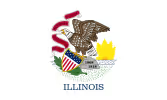
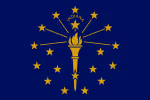
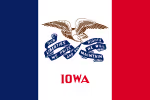


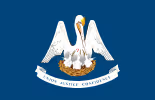
.svg.avif)




.avif)
.avif)
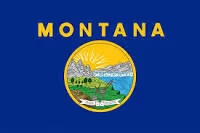
.avif)
.avif)
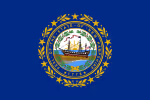

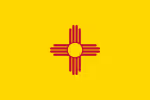
.avif)


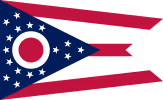
.svg.avif)
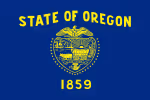
.avif)

.avif)
.avif)
.avif)
.avif)
.avif)
.avif)
.avif)
.avif)
.avif)
.avif)
.avif)
.svg%20(1).avif)
.svg)

